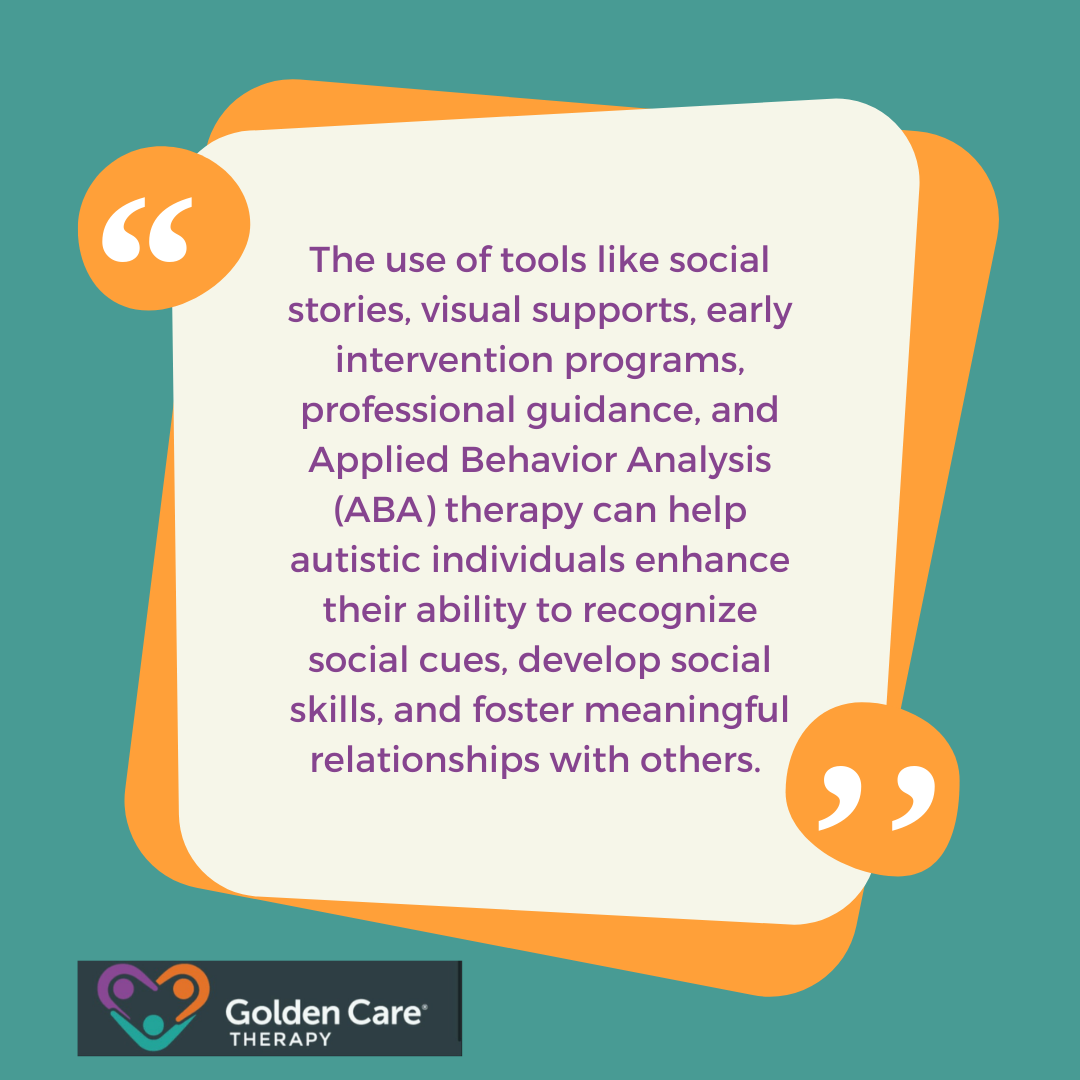
Table of Contents
Understanding social cues is a crucial part of interacting with others, but for many people with autism, these cues can be challenging.
Social cues include things like body language, facial expressions, and tone of voice that help us understand how someone feels or what they might be trying to communicate. For those on the autism spectrum, interpreting these signals can be tricky. This often means that everyday conversations and social interactions can feel overwhelming or confusing.
Recognizing and addressing these challenges can make a big difference in improving communication and relationships. Exploring how social cues are perceived differently in autism helps us better support and connect with those who navigate the world in unique ways.
Impact on Social Relationships
The inability to pick up on social cues can have a profound impact on social relationships for individuals with autism spectrum disorder.
Difficulties in recognizing emotions and social signals can create barriers to forming meaningful connections with others. This can lead to increased anxiety and stress, affecting overall well-being and self-confidence.
Without the ability to interpret social cues accurately, individuals with autism may struggle to navigate social situations, maintain friendships, and engage in everyday interactions smoothly.
Understanding the challenges individuals with autism face in decoding social cues is crucial in providing the necessary support and interventions to help them improve their social skills and relationships.

It is through targeted interventions and understanding that individuals with autism can overcome these challenges and engage more effectively in social interactions.
Strategies to Recognize Social Cues
Implementing effective strategies is crucial in fostering social interactions and communication skills among autistic individuals. Here, we’ll explore key strategies that can help autistic individuals recognize and respond to social cues.
These are as follows:
Social Stories and Visual Supports
Practical exercises like social stories and visual supports play a vital role in helping individuals with autism recognize social cues and practice social skills effectively. Social stories are personalized narratives that describe social situations, behaviors, and responses in a clear and structured manner.
Utilizing visual supports, such as pictures, symbols, and visual schedules, can help autistic individuals better understand and interpret social cues.
These visual aids provide a concrete representation of social expectations and can aid in improving social communication and interaction.
Early Intervention and Professional Support
Autism presents challenges in communication, social interaction, and behavior for individuals. Early intervention and professional support are essential components in assisting individuals with autism in developing their social skills and navigating social interactions.
Early diagnosis is critical in providing children with autism the necessary support and interventions to enhance their social abilities.
Accessing services like speech and language therapy, occupational therapy, and social skills training can aid individuals in understanding social cues, processing verbal and nonverbal communication, and navigating social situations effectively.

ABA Therapy
Applied Behavior Analysis therapy has emerged as a valuable tool in teaching social skills to individuals with autism. ABA therapy breaks down complex social interactions into manageable steps, allowing individuals to learn and practice social skills in a structured and supportive environment.
One of the key advantages of ABA therapy is its use of reinforcement principles to encourage positive social behaviors and help individuals recognize social cues. By implementing targeted interventions and personalized strategies, ABA therapy aims to enhance social interaction, communication, and relationship-building skills in individuals with autism.
Importance of ABA Therapy
ABA therapy plays a crucial role in addressing the challenges faced by individuals with autism in understanding social cues. It focuses on breaking down complex social interactions into smaller, more manageable steps for interaction and utilizes reinforcement principles to encourage positive social skills and the recognition of social cues.
ABA therapy has demonstrated several advantages in teaching social skills to children with autism spectrum disorder. Incorporating structured and systematic teaching methods helps individuals build a foundation for understanding and responding to social cues.
Here are some benefits of ABA therapy for social skills development:
- Encourages positive behavior through reinforcement techniques
- Breaks down social interactions into manageable steps
- Promotes generalization of social skills across different settings
- Provides individualized treatment plans tailored to the specific needs of each individual
- Enhances communication and social interaction skills
ABA therapy applies principles that are fundamental to its success in promoting social skills development. It revolves around evidence-based strategies and interventions that are designed to be systematic, structured, and tailored to the unique needs of the individual.
Leveraging the advantages and principles of ABA therapy helps autistic individuals enhance their social skills, improve their ability to recognize social cues, and navigate social interactions with greater confidence and success.
The structured and evidence-based approach of ABA therapy provides a framework for effective intervention and support in promoting social development for individuals on the autism spectrum.
Final Thoughts
Understanding social cues in autism opens up a world of connection and empathy. By recognizing that social cues can be challenging for those with autism, we can better support and communicate with them.
Remember, it’s not about fitting a mold, but about embracing each person’s unique way of interacting.
With patience and understanding, we can bridge gaps, build meaningful relationships, and create a more inclusive world where everyone feels valued and understood. For those seeking specialized support, consider exploring ABA services in New York, New Jersey, Georgia, and Indiana, from Golden Care Therapy. To learn more about how we can help, contact us for personalized support and guidance.
Sources:
- Video Modeling and Its Impact on ABA Learning - September 27, 2024
- Strategies for Teaching Turn-Taking in Autism - September 27, 2024
- Understanding Social Boundaries in Autism - September 27, 2024
